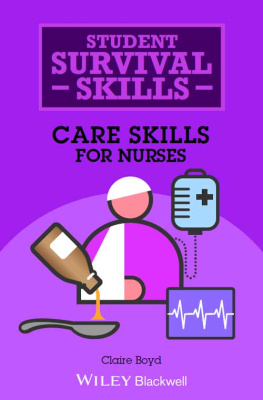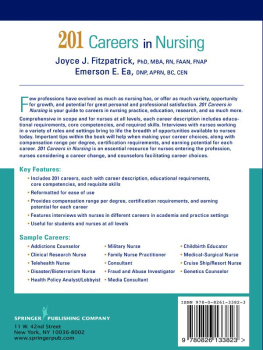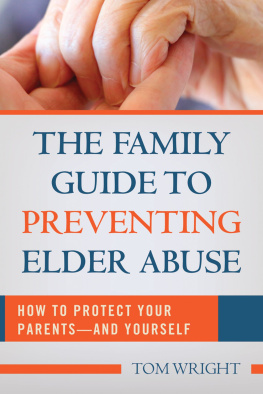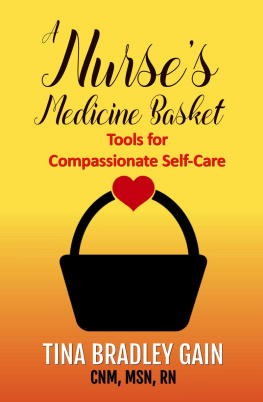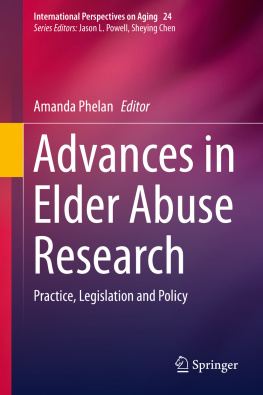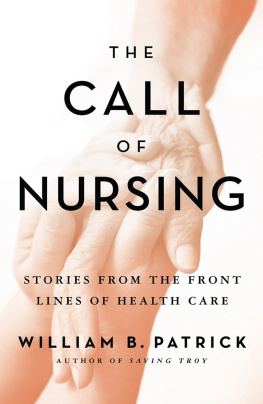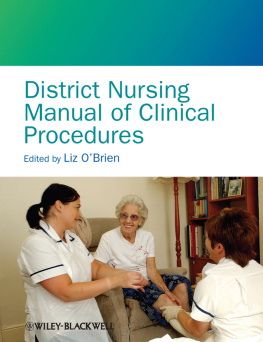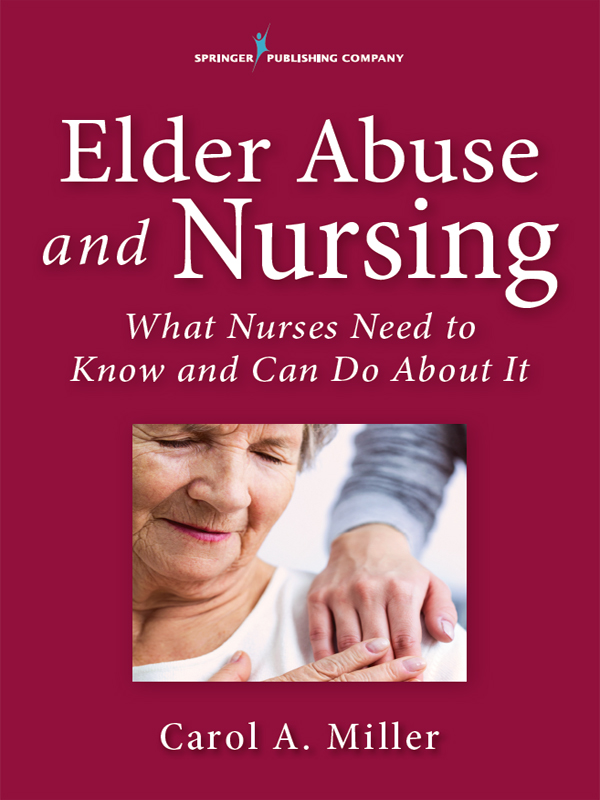ELDER ABUSE AND NURSING
Carol A. Miller, MSN, RN-BC, has cared for older adults in homes, hospitals, hospice settings, a geropsychiatric program, long-term care facilities, and many community-based programs for more than four decades. Her roles have included nurse practitioner, geriatric care manager, clinical nurse specialist, consultant, administrator, interprofessional team member, and staff nurse. In all these roles and settings, she has provided nursing care for hundreds of older adults who are in abusive or potentially abusive situations. Ms. Millers interest in elder abuse began in 1978 when she served on the staff of the U.S. House of Representatives, Select Committee on Aging and was involved with organizing hearings and developing legislation to address elder abuse at the federal level. Since then, in addition to her clinical practice, she has participated in research and presented at numerous local, state, and national conferences on various aspects of elder abuse and gerontological nursing.
Ms. Miller has held various faculty positions at the Frances Payne Bolton School of Nursing at Case Western Reserve University and a host of other nursing programs. She is widely published in nursing journals and is the sole author of several nursing texts, including Fast Facts for Dementia Care (Springer Publishing Company) and Nursing for Wellness in Older Adults, 7th Edition, which won a Book of the Year award from the American Journal of Nursing in 2015.

ELDER ABUSE AND NURSING
What Nurses Need to Know and Can Do About It
Carol A. Miller, MSN, RN-BC

Copyright 2017 Springer Publishing Company, LLC
All rights reserved.
No part of this publication may be reproduced, stored in a retrieval system, or transmitted in any form or by any means, electronic, mechanical, photocopying, recording, or otherwise, without the prior permission of Springer Publishing Company, LLC, or authorization through payment of the appropriate fees to the Copyright Clearance Center, Inc., 222 Rosewood Drive, Danvers, MA 01923, 978-750-8400, fax 978-646-8600, .
Springer Publishing Company, LLC
11 West 42nd Street
New York, NY 10036
www.springerpub.com
Acquisitions Editor: Elizabeth Nieginski
Senior Production Editor: Kris Parrish
Composition: Westchester Publishing Services
ISBN: 978-0-8261-3152-2
e-book ISBN: 978-0-8261-3153-9
16 17 18 19 20 / 5 4 3 2 1
The author and the publisher of this Work have made every effort to use sources believed to be reliable to provide information that is accurate and compatible with the standards generally accepted at the time of publication. Because medical science is continually advancing, our knowledge base continues to expand. Therefore, as new information becomes available, changes in procedures become necessary. We recommend that the reader always consult current research and specific institutional policies before performing any clinical procedure. The author and publisher shall not be liable for any special, consequential, or exemplary damages resulting, in whole or in part, from the readers use of, or reliance on, the information contained in this book. The publisher has no responsibility for the persistence or accuracy of URLs for external or third-party Internet websites referred to in this publication and does not guarantee that any content on such websites is, or will remain, accurate or appropriate.
Library of Congress Cataloging-in-Publication Data
Names: Miller, Carol A., author.
Title: Elder Abuse and Nursing : What Nurses Need to Know and Can Do About It / Carol Miller.
Description: New York, NY : Springer Publishing Company, LLC, [2017] | Includes bibliographical references and index.
Identifiers: LCCN 2016017448| ISBN 9780826131522 (print) | ISBN 9780826131539 (ebook)
Subjects: | MESH: Elder Abuseprevention & control | Geriatric Nursingmethods | Elder Abusediagnosis
Classification: LCC HV6626.3 | NLM WY 152 | DDC 362.6/82dc23 LC record available at https://lccn.loc.gov/2016017448
Special discounts on bulk quantities of our books are available to corporations, professional associations, pharmaceutical companies, health care organizations, and other qualifying groups. If you are interested in a custom book, including chapters from more than one of our titles, we can provide that service as well.
For details, please contact:
Special Sales Department, Springer Publishing Company, LLC
11 West 42nd Street, 15th Floor, New York, NY 10036-8002
Phone: 877-687-7476 or 212-431-4370; Fax: 212-941-7842
E-mail:
Printed in the United States of America by McNaughton & Gunn.
I dedicate this book to the memory of my dear friend and colleague, Betty Lau, whose pioneering work in elder abuse set the wheels in motion for national legislation to address elder abuse. On a clinical level, it was a privilege to work with Betty as one of the many professionals who not only cared about preventing elder abuse, but also took action to address the needs of older adults who were in actual or potential elder abuse situations.
Perhaps most importantly, I dedicate this book to older adults, with the hope that nurses and other professionals will apply the content to prevent elder abuse and address the consequences as we provide care.

CONTENTS
Debra Hain, PhD, ANP-BC, GNP-BC, FAANP
Georgia J. Anetzberger
Terry Fulmer
CONTENTS
Guide

CONTRIBUTORS AND REVIEWERS
CONSULTANT AND REVIEWER FOR THE BOOK
Georgia J. Antezberger, PhD, ACSW
CONTRIBUTORS,
BENJAMIN ROSE INSTITUTE ON AGING (BRIA)
Farida Kassim Ejaz, PhD, LISW-S
Christine Foley, BA, RN, COS-C
Lauren Borato, BS
Amanda McLaughlin, BA
CONTRIBUTOR, , CASE OF JANE
Georgia J. Anetzberger, PhD, ACSW
CONTRIBUTORS, EPILOGUES
Georgia J. Anetzberger, PhD, ACSW
Terry Fulmer, PhD, RN, FAAN
REVIEWER,
Charles P. Mouton, MD, MS
REVIEWER,
Farida Kassim Ejaz, PhD, LISW-S

FOREWORD
The United States is experiencing a substantial growth in the number of adults age 65 and older and this trend is expected to continue over the next few decades. Although the focus has been on discovering ways to provide the best health care for a population in which the majority will have one or more chronic diseases, little attention has been given to the growing problem of elder abuse. Elder abuse is a worldwide problem with a varying prevalence, based on population settings, definitions, and research studies. Elder abuse is prevalent among older adults with dementia, minority populations, and marginalized populations. However, elder abuse can happen to anyone (e.g., lower or upper socioeconomic status, male or female) and in any setting (e.g., in the home, in long-term care). The National Center on Elder Abuse defines the following seven types of elder abuse: self-neglect, neglect, physical, emotional (psychological), exploitation, sexual, and abandonment.



